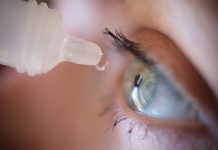
A study conducted by Choy-Lye Chei et al. and published in The European Journal of Nutrition suggests that the way people drink tea and coffee may affect their risk of developing high blood pressure.
Caffeine, a natural chemical with stimulant effects, is found in a variety of products, including coffee, tea, cola, cocoa, guarana, and yerba mate.
Caffeine works by stimulating the central nervous system, heart, muscles, and centers that control blood pressure.
It increases activity in the brain and nervous system, and it also increases the circulation of chemicals such as cortisol and adrenaline in the body.
The link between coffee and tea consumption and the risk of high blood pressure has been a topic of controversy for years.
To address this issue, the scientists examined data from 63,257 Chinese people aged 45-74 residing in Singapore from 1993 to 1998.
The researchers collected information about coffee and tea drinking habits and other lifestyle factors.
They then assessed high blood pressure during two follow-up interviews (1999-2004, 2006-2010) and found 13,658 cases of high blood pressure after an average of 9.5 years.
According to the study, people who drank ≥3 cups of coffee per day had a lower risk of high blood pressure compared to those who drank only one cup of coffee per day.
In contrast, daily drinkers of black or green tea had a slight increase in the risk of high blood pressure compared to those who drank tea less frequently.
The researchers also found a dose-response link between caffeine intake and high blood pressure risk.
Those who consumed the highest amount of caffeine (≥300 mg/day) had a 16% increase in risk compared to those who consumed the lowest amount (<50 mg/day).
The scientists suggest that drinking less than one cup of coffee per week or three or more cups per day may lower the risk of high blood pressure.
Caffeine may account for the increased risk in daily tea drinkers and those who consumed only one cup of coffee per day.
The researchers also hypothesize that at higher doses, other ingredients in coffee may reduce the effect of caffeine and confer benefits on blood pressure.
However, further research is needed to test this hypothesis. Overall, the study suggests that the way people consume tea and coffee may have a significant impact on their risk of developing high blood pressure.
If you care about blood pressure, please read studies about a major cause of high blood pressure, and coconut sugar could help reduce blood pressure and artery stiffness.
For more information about blood pressure, please see recent studies that black tea may strongly reduce blood pressure, and results showing these high blood pressure drugs may increase heart failure risk.
Copyright © 2023 Knowridge Science Report. All rights reserved.



